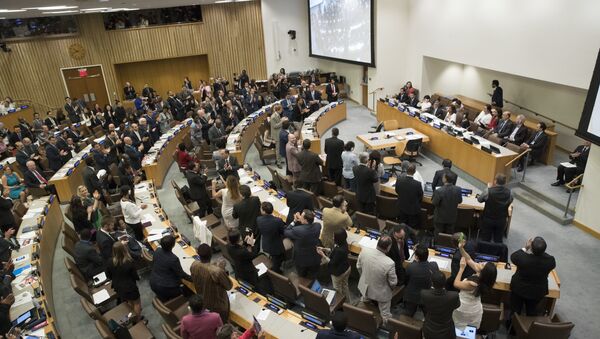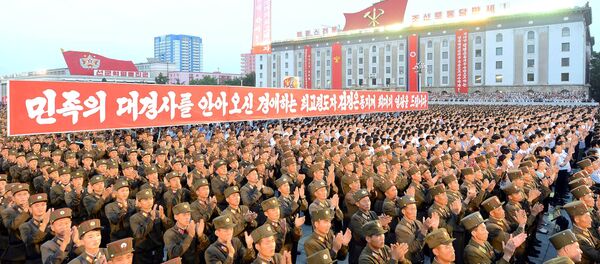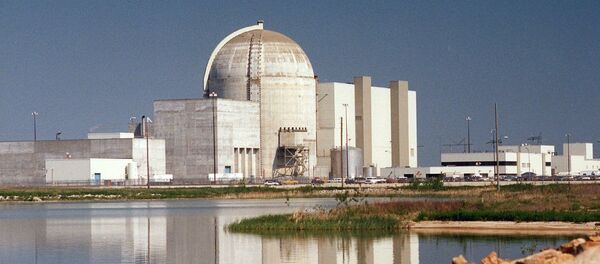A legally-binding treaty prohibiting nuclear weapons was adopted by 122 UN member states on Friday. The treat covers the full range of nuclear-weapons-related activities, prohibiting undertaking by any State party to develop, test, produce, manufacture, acquire, possess or stockpile nuclear weapons or other nuclear explosive devices.
The ten-page treaty on the prohibition of nuclear weapons will be open for signatures from any UN member state on 20 September during the annual general assembly.
Nuclear powers such as the US, Russia and some allies who host nuclear weapons on their soil did not take part in the discussions, but supporters of the treaty said they hope nuclear-weapon states will be able to eventually join the treaty.
Russia said that it would not sign the new convention because it runs counter to the country’s national interests. The director of the Russian Foreign Ministry’s non-proliferation and weapons control department, Mikhail Ulyanov, said that Moscow fears that the treaty could "have a negative influence on the state of affairs in the international arena, primarily in nuclear non-proliferation."
"Frankly, it's a shame that the countries that have nuclear weapons have them, there's no room for nuclear weapons. A nuclear weapon is basically a match in a room full of gasoline. The idea of deterrence is a myth, any use of nuclear weapons of any country will have a global impact and in fact threaten all human life on Earth."
"So, anything that leads us closer to getting rid of nuclear weapons as well as nuclear power plants is an important step forward," Wasserman said.
Costa Rica's Permanent Representative at the UN Elayne Whyte Gomez presided over the UN conference to negotiate a legally-binding instrument to prohibit nuclear weapons. She said that the adoption of the treaty is a "historic moment."
Wasserman said that the symbolism of the treaty is "very significant."
"We hope that none of the signees will move to develop nuclear weapons, that helps. Then, of course we have to have the nuclear countries come to their senses and get rid of nuclear weapons. There's simply no excuse whatsoever for having a nuclear weapon, certainly never for using one and I hope this treaty will at least get us close to getting rid of all of them," Wasserman said.
Although the treaty is said to be legally binding, the potential consequences of breaking the treaty remain to be seen.
"We have a terrifying situation now with North Korea, we have a situation where a country with nuclear weapons has a leader that may not be mentally balanced. I think we have a similar situation in the US, frankly, and this underscores why we need to get rid of nuclear weapons – as well as nuclear power plants."
"The Japanese are now announcing that they're going to be dumping still more radioactive waste from Fukushima into the Pacific Ocean and so nuclear power as well as nuclear weapons have to be done away with," Wasserman said.
Commenting on the treaty when negotiations began in March, US Ambassador to the UN Nikki Haley argued that the premise is unrealistic because some countries would not cooperate.
"There is nothing I want more for my family than a world with no nuclear weapons, but we have to be realistic," Haley said.
"Is there anyone that believes that North Korea would agree to a ban on nuclear weapons?" she asked.
"Deterrence is a myth because the country that uses the nuclear weapon will ultimately be destroyed by it, no matter where the nuclear weapon is dropped. The nuclear fallout goes all around the world, we've seen that in the nuclear testing era and it would be worse in a hostile situation with the use of a nuclear weapon."
"We've got to get rid of these weapons and the US has no business saying that the world will be more dangerous without them, especially given our current leadership situation. This is a terrifying turn of events with nuclear weapons, they have to be done away with entirely."
"This is a good first step, a small step forward and at some point we'll hopefully have the kind of leadership in this world to get rid of all these nuclear weapons because we will not survive if they continue to exist and certainly not if they are ever used."





